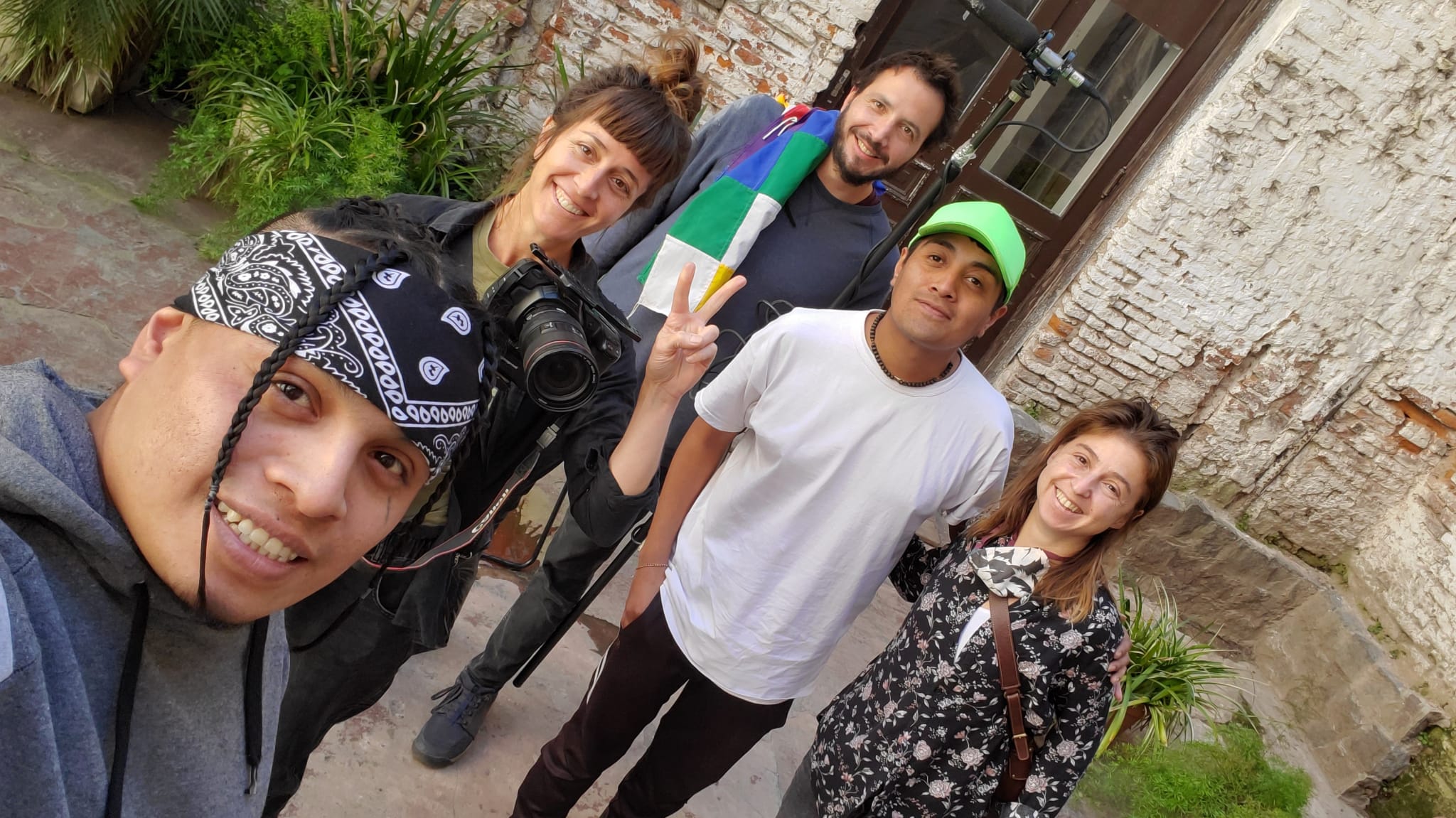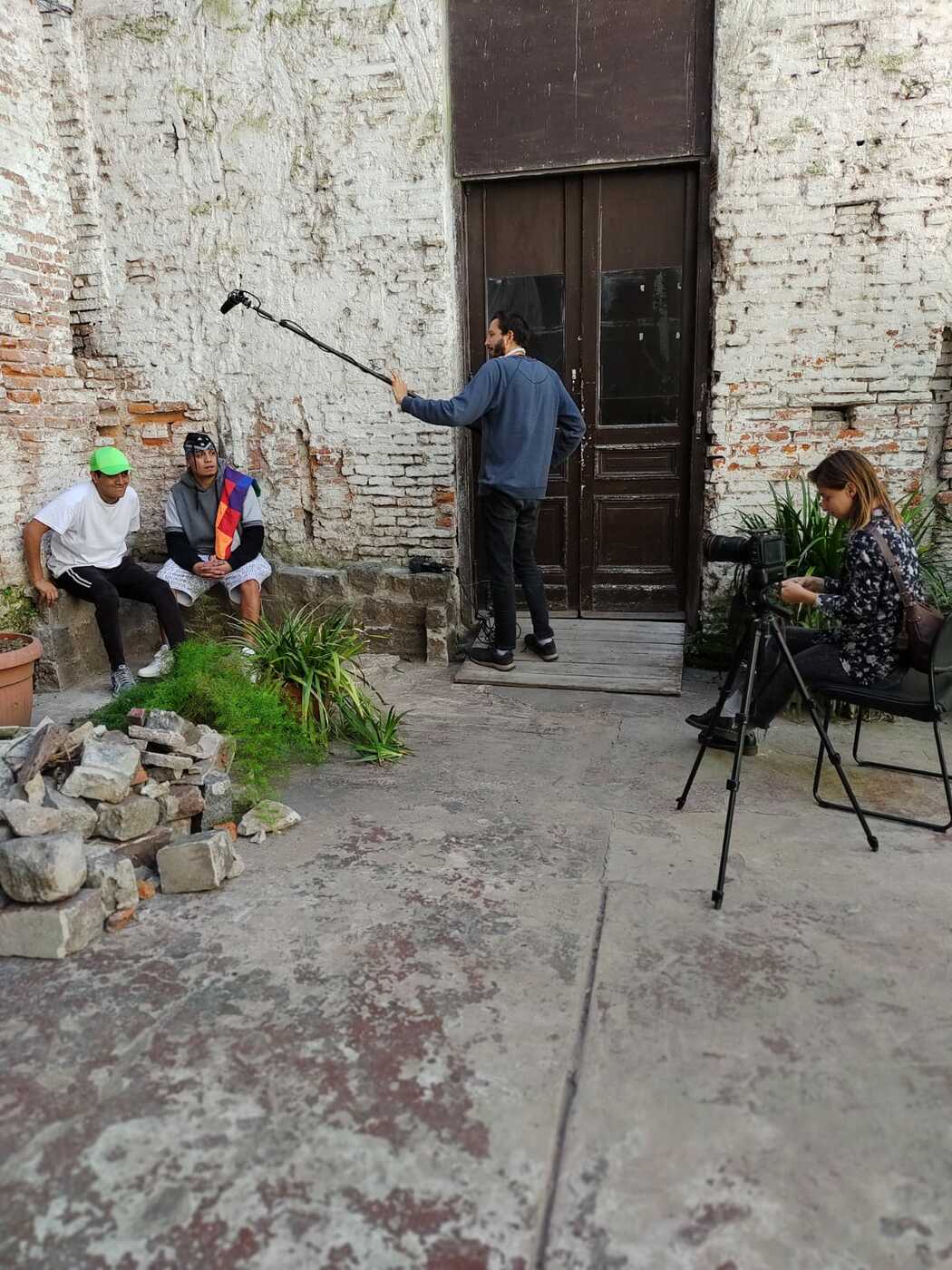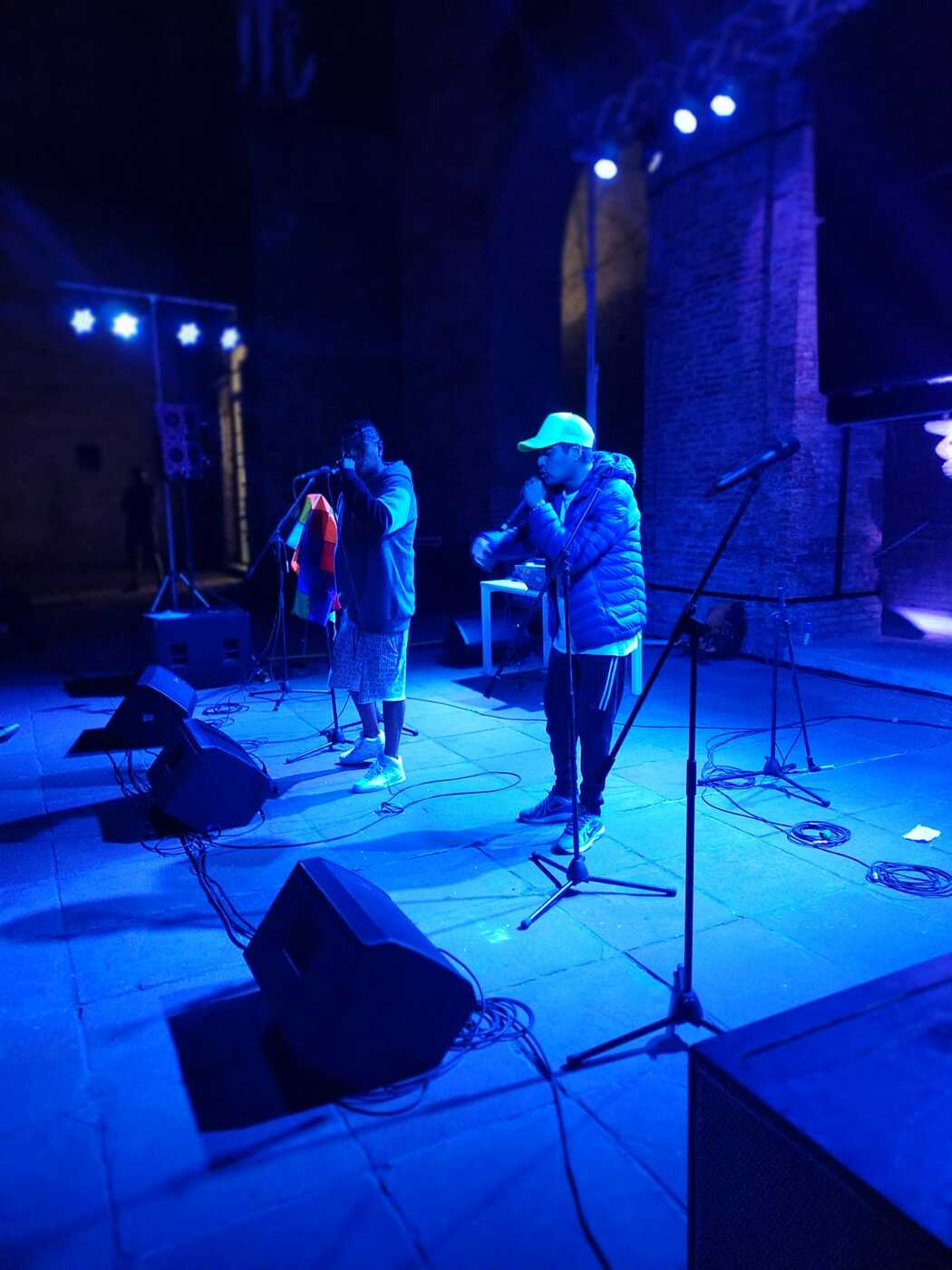Eskina Qom
Lorena Cañuqueo, Pablo Cossio, Ana Vivaldi
Eskina Qom is the musical project of two brothers, Brian and Nahuel López. They use the vast repertoire of hip hop to visibilise the experience of originary peoples in the Daviaxaiqui neighbourhood of the Derqui district of Greater Buenos Aires, Argentina. The Qom are one of the Indigenous nations that have been excluded from the founding narrative of the Argentine nation. Eskina Qom takes a clear stance as members of that collective history. At the same time, they challenge stereotypes about Indigenous people in their lyrics and audiovisual productions by narrating the plans, thoughts and desires of the Qom from the perspective of suburban Qom youth.
Brian and Nahuel López have played on the hip hop circuit in Buenos Aires for more than seven years. In 2016, together with the “Amambay 100000” project, the group released their first album, Rap Originario, produced by Corco Bravo. It included eight original songs and is available for free on their Soundcloud platform.
These videos were shot on 17 October 2021 in the old patio of the Manzana de las Luces Museum during a music and performance festival, part of a series of activities organised by Identidad Marrón. The festival was titled “¿Podrán eliminarnos? Ni en 500 años” (Can they eliminate us? Not in 500 years). Eskina Qom presented their originary rap, a genre they created based on their experience in music and the Indigenous themes of their lyrics. Eskina Qom affirm themselves as part of the Toba Qom people and as urban native people who make the struggle in the city visible.
Three videos can be seen on this page: a trailer of the material; a video clip of one of the songs live; the complete interview and a record of the day. There is also a podcast in which Brian and Nahuel talk with Ana Vivaldi and Lorena Cañuqueo.
In the video, Eskina Qom talk about their trajectory, their place within the Argentine rap and hip-hop scene, and how their experience as Indigenous people in the city informs their artistic production.

"We are the Indians who grew up in the city," say Nahuel and Brian, who began writing their songs because they did not feel represented by traditional urban rap. They are children of the Qom people and affirm their ancestors. They are creators of a genre they called "Originary Rap": with their lyrics, they talk about their and their relatives’ life stories and denounce the spatial segregation experienced by thousands of originary people who arrive in the big cities in search of job opportunities.
60-minute documentary about the neighborhood hip-hop group from Argentina, Eskina Qom.


